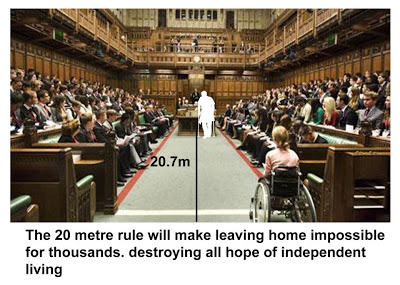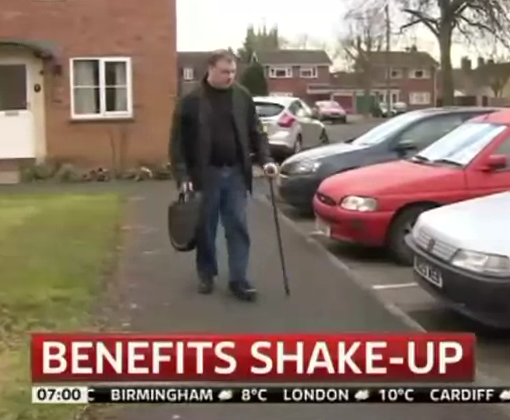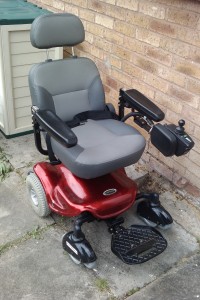This morning we received the final judgment in our appeal of the judicial review of the consultation for PIP. The appeal was not successful.
The full text of the judgment is linked below but I will quote here the key paragraphs that my solicitor pointed out.
- Once it was accepted, as it had to be on the evidence, that the Respondent approached the 2013 consultation with an open mind, it seems to me that the challenge to the process as a whole must fail. It is explained in the evidence that all options were open as to the “Moving around criteria”, even if that meant changing the criteria for “Planning and following journeys” or looking for funding elsewhere. The reality was that consultees such as Mr Sumpter had every opportunity to present to the Respondent the difficulties that the move from a 50 metre benchmark to a 20 metre one would cause to them. It is clear that such opportunity was taken. In reality, it would have gone nowhere to contend in the consultation that the physically disabled should continue to be favoured at the expense of those who suffered other disabilities. No doubt none would have wished to present such an unattractive argument. Given the Respondent’s overall policy to make PIP available to a wider category of the disabled, new beneficiaries obviously had to come into the equation and there would have been no point in contending that they should be excluded.
- …As I understand the law, consultation has to be fair; it does not have to be perfect. With the benefit of hindsight, it will no doubt often be possible to show that a consultation could have been carried out rather better, but that will not necessarily mean that it was unfair. That is what the judge said at paragraph 123 of his judgment and I agree with him.
I note that the judge did draw attention to the choice that the government made to frame continuing to help physically disabled people as unfairly withholding help from people with mental and cognitive difficulties. He did not, however, find it relevant that the consultation failed to admit the government decision to give new help at the expense of help previously available. The judge implied that people responding to the consultation only needed to talk about the difficulties we would face, not about the decision to take money away for use elsewhere.
It should be noted that the government had previously said while defending this case that they know they are removing DLA from “individuals with genuine health conditions and disabilities and genuine need” and “removing or reducing that benefit may affect their daily lives.” (This is a direct quote of words used by the government and quoted in the judgment in 2014 at paragraph 80.)
[PDF] Final judgment PIP judicial review appeal
For further information please contact solicitors for this case, Irwin Mitchell.
Previously on this subject:
PIP 20 metre rule consultation back in court
PIP judicial review: Court rules against us but vindicates our case
Two weeks until PIP Judicial Review – 20 metre limit in the dock
Replacement of disability living allowance headline news for hours






